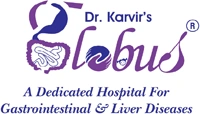Diarrhea Treatment in Mumbai
Diarrhea- loose and watery stools and more frequent bowel movements are very common problems. It generally lasts for a few days but may become a matter of concern if it lasts beyond a few days. Chronic diarrhea indicates that there may be other problems such as ibs (irritable bowel syndrome), celiac disease, inflammatory bowel disease among others. Consult doctor about Diarrhea Treatment in Mumbai with Dr. Vedant Karvir.
Symptoms associated with diarrhea.
- Fever
- Vomiting
- Nausea
- Blood in stool
- Mucus in stool
- abdominal cramps
- Bloating
- Frequent bowel movements
When should you consult a doctor?
Adults should consult their physician if:
- Loose, watery stools persist beyond two days.
- You have black or bloody stools.
- You have severe pain in the abdomen.
- You are suffering from dehydration.
Children, particularly young ones may quickly become dehydrated because of diarrhea. If the child has a fever above 102 f and seems dehydrated, consult your doctor immediately, without wasting any time.
What are the common causes of diarrhea?
- Lactose intolerance – lactose is found in milk and dairy products. People who have difficulty digesting lactose may suffer from diarrhea after consuming dairy products.
- Artificial sweeteners – artificial sweeteners are non-absorbable sugars found in sugar-free products and can cause diarrhea in people.
- A side-effect of medication – many medications cause diarrhea. Antibiotics remove infection by killing the bad bacteria in the body. Sometimes they kill the good bacteria as well, leading to an imbalance of bacteria in our intestine. This causes diarrhea.
- Bacteria and viruses – exposure to harmful pathogens such as bacteria and viruses through contaminated food and water is a leading cause of diarrhea.
- Digestive disorders – diarrhea may also be caused if a person is suffering from diseases such as crohn’s disease, celiac disease, ulcerative colitis, small intestine bacterial growth, etc.
How can diarrhea be prevented?
Diarrhea can be prevented by following some simple steps like regular handwashing. Eat hygienic food and drink bottled water. Avoid raw and undercooked meat and dairy products.
To know more about Diarrhea treatment in Mumbai book an appointment with Globus Hospital call on 98331 06104, 98331 87118 or visit our hospital at 201, Second Floor, Kothari Milestone Mall, Near Natraj Market, S.V Road, Malad West - 400064. For hospital directions click here.
Others Condition:
Bloating | Cancers of Stomach, Intestine & Liver | Constipation | Hirshsprung’s Disease | Gallstone | Dysphagia | Inflammatory Bowel Disease | Pancreatitis | SIBO | Barrett’s Esophagus | Blood in Stools / Vomitus | Celiac Disease | Diarrhea | Fatty Liver | Gerd | Irritable Bowel Syndrome | Piles


